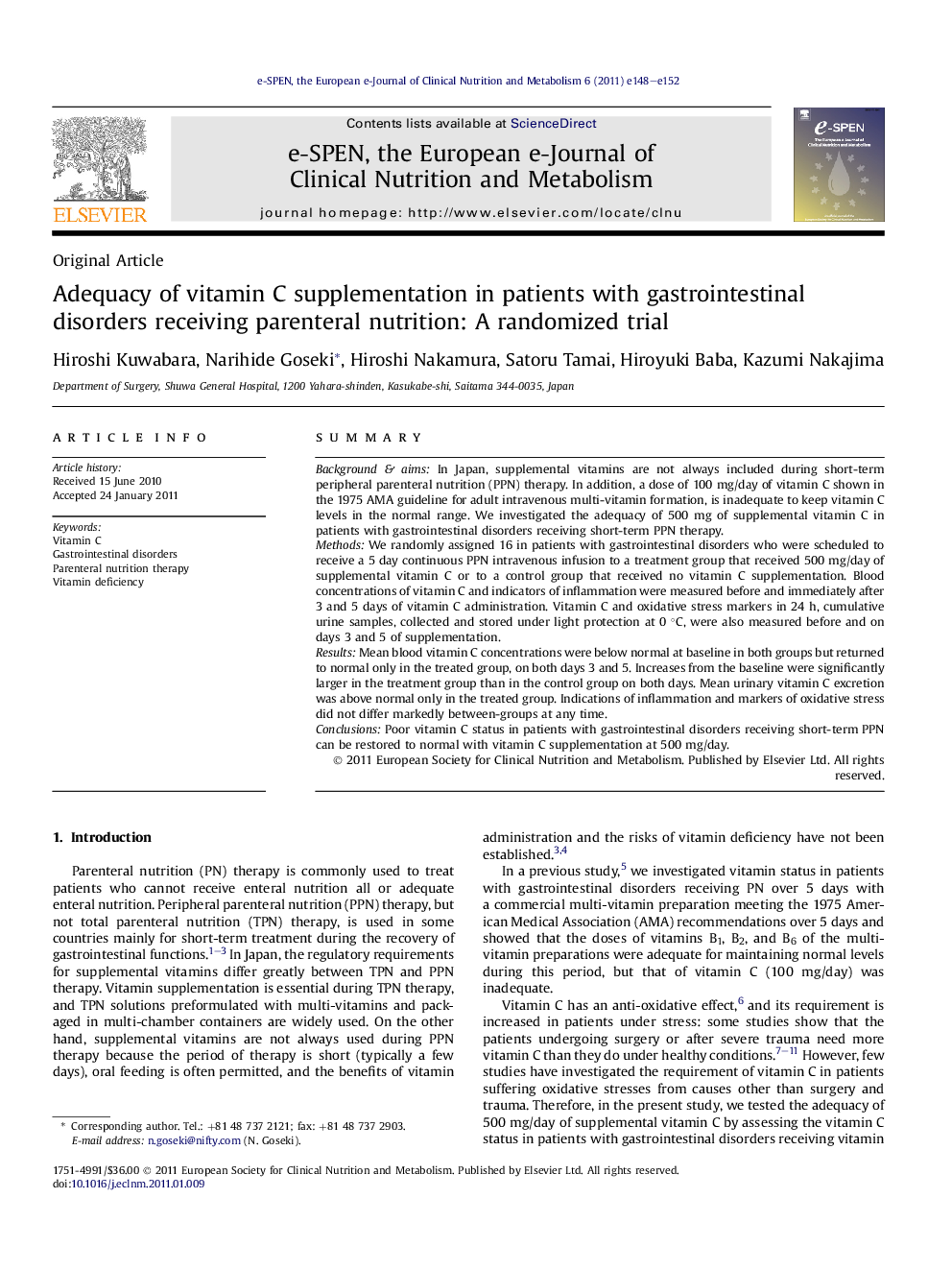| Article ID | Journal | Published Year | Pages | File Type |
|---|---|---|---|---|
| 2691092 | e-SPEN, the European e-Journal of Clinical Nutrition and Metabolism | 2011 | 5 Pages |
SummaryBackground & aimsIn Japan, supplemental vitamins are not always included during short-term peripheral parenteral nutrition (PPN) therapy. In addition, a dose of 100 mg/day of vitamin C shown in the 1975 AMA guideline for adult intravenous multi-vitamin formation, is inadequate to keep vitamin C levels in the normal range. We investigated the adequacy of 500 mg of supplemental vitamin C in patients with gastrointestinal disorders receiving short-term PPN therapy.MethodsWe randomly assigned 16 in patients with gastrointestinal disorders who were scheduled to receive a 5 day continuous PPN intravenous infusion to a treatment group that received 500 mg/day of supplemental vitamin C or to a control group that received no vitamin C supplementation. Blood concentrations of vitamin C and indicators of inflammation were measured before and immediately after 3 and 5 days of vitamin C administration. Vitamin C and oxidative stress markers in 24 h, cumulative urine samples, collected and stored under light protection at 0 °C, were also measured before and on days 3 and 5 of supplementation.ResultsMean blood vitamin C concentrations were below normal at baseline in both groups but returned to normal only in the treated group, on both days 3 and 5. Increases from the baseline were significantly larger in the treatment group than in the control group on both days. Mean urinary vitamin C excretion was above normal only in the treated group. Indications of inflammation and markers of oxidative stress did not differ markedly between-groups at any time.ConclusionsPoor vitamin C status in patients with gastrointestinal disorders receiving short-term PPN can be restored to normal with vitamin C supplementation at 500 mg/day.
